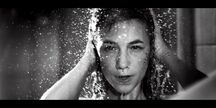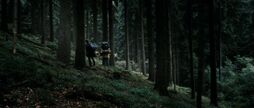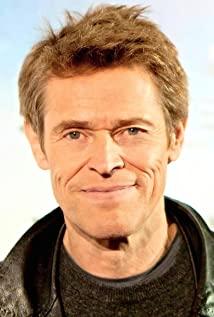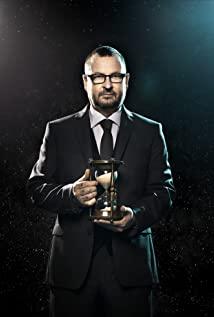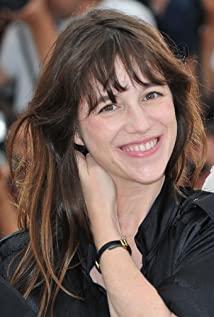In my opinion, the whole movie is about showing the heroine struggling between desire and reason, and finally succumbing to desire. The heroine's husband represents civilization and rationality, and his profession is a psychologist, a model of modern science. The heroine hovers between reason and desire. She wrote alone in the Woods of Eden with her children on a study of medieval Christian massacres of witches. The behavior of witches cannot be understood and tolerated by the church and is accused of being a representative of evil. In the era of ecclesiastical dictatorship, things that cannot be understood have always been obliterated, so the so-called witches were massacred. In the process, there are many ordinary women who may have been murdered just because they expressed their desires. When the heroine was writing in the forest, she was surrounded by nature and far away from the modern civilized society. In the process of reading materials, her inner desire was awakened.
Desires here are not just sexual desires, but all natural instincts endowed to animals. Not all of the instincts nature bestows on animals are beautiful. It is instinct to take care of the next generation, and it is also instinct to eat the next generation. There are many scenes in the film where animals cannibalize the next generation, which is unbearable, but these things do exist. We don't judge an animal because it eats the next generation, we just say, that's what animals are. If the same thing happened to human beings, it would probably be criticized by thousands of people and cast aside by thousands of people, saying that there is no humanity. That is to say, what we call human nature and nature themselves are at odds. Animal behavior is neither good nor evil, it is all instinct. Human behavior is divided into good and evil, but the so-called good and evil are just labels attached to some of your behaviors by others. If you take care of the next generation, it is good, and if you harm the next generation, it is evil. The heroine is alone in nature, and there is no other person to judge what she does, and there is no distinction between good and evil, so her actions are purely instinctive.
So the contradiction appeared like this. The female protagonist is obviously a person with higher education. She is afraid of her uncontrollable desires and has no way to do it. This fear became infinitely expanded after her child fell to her death. On the one hand, she could not bear the pain of losing her son, and on the other hand, she could not face the fact that her son was killed because she succumbed to desire (sexual desire). Then the male protagonist tried to help the female protagonist find the source of her fear and brought the female protagonist back to Eden. The female protagonist who has entered nature has returned to her previous state, and her desire is even stronger. In addition to sexual desire, there is also a desire for possession and control. The male protagonist found the notes and materials that the female protagonist hid in the attic, and could not understand that the female protagonist actually understood the persecution of women as the evil of women themselves. My understanding here is that both males and females are evil, but centuries of patriarchal society have created different definitions of the same behavior between males and females. For example, as I just said, witches cast curses to kill, it is evil, and the church (male power) kills witches, it is justice. In the end, it's all killing. Although modern society has denied the church's slaughter of witches at that time, acts of the same nature (the so-called righteous killings) are still happening everywhere today.
The heroine who arrived at Eden did not completely give up rational resistance. When the female protagonist asked the male protagonist to beat himself when he was under the tree, it symbolized the lashing of rationality against primitive desires. And then she cut off the clitoris as a symbol of desire, which is also a kind of resistance. Ironically, in the end, not only did the female protagonist not escape the control of desire, but even the male protagonist, who has always prided himself on being rational and civilized, succumbed to the clutches of desire. The deafening rain of acorns symbolizes the call of Satan, and the male protagonist surrenders to his own impulse and kills the female protagonist. Here, there are scenes that have appeared before, showing the physiological reactions of anxiety, such as rapid pulse, shortness of breath, etc., but the anxious person has been replaced by the male protagonist. In fact, this urge to kill is not the first time he has appeared. The footage of him smashing birds in a tree hole has already revealed some signs. A little further, when the male protagonist stepped into Eden, Satan had already sent him an invitation.
The Antichrist is not against women, it questions what we call civilization. Christianity, as the ideological subject of Western civilization, has ruled for centuries, and the development of science and technology after the Enlightenment has enabled human beings to have a rational understanding of themselves. But can the virtues advocated in Christianity and our rational understanding of ourselves brought about by the development of science can generalize human beings? Can good and evil, desire and reason define all human behavior? Are we too proud to think we can understand what nature has given us? And are we too naive to think that all that nature has given us is good? The Antichrist brought me this kind of thinking.
View more about Antichrist reviews




